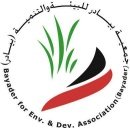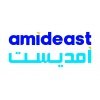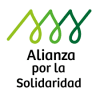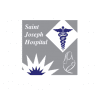Training of Community Emergency Preparedness Committees
Terms of Reference
Quotation No. 17.2022
Training of Community Emergency Preparedness Committees
Project Name: Gaza Household WASH Activity (GHW)
1. Introduction
1.1 Background about Bayader
Bayader for Environment & Development (Bayader) is a non – government organization established in 2007 aiming to develop the Palestinian community and society in child protection & education, development and institution building, community development, economic empowerment & civic participation, and emergency response & early recovery.
Bayader is working in the field of community initiatives mainly in non-profit activities with the community.
1.2 Background about the Project:
Gaza Household WASH Activity (GHW) aims to improve human health, environmental health, and livelihoods in vulnerable communities by increasing access to facilities and services for safe domestic water and improved sanitation. Priorities include: 1) Providing durable solutions to vulnerable communities, such as the establishment, extension, or rehabilitation of water distribution networks and sanitation systems at the household and neighborhood levels; and 2) Increasing emergency WASH preparedness interventions to mitigate and reduce rainwater and sewage flooding risks in vulnerable communities.
This goal will be met by achieving the following objectives/components:
- Component 1: Water Activities-Increased Quantities of Safe Water for Households’ Domestic Use in Vulnerable Communities,
- Component 2: Sanitation Activities- Improved Access of Vulnerable Households to Sanitation Services, and
- Component 3: Emergency Preparedness and Resilience - Enhanced Preparedness to WASH Disasters and Minimized Future Risks in Targeted Communities.
GHW’s technical strategy consists of four elements:
- Holistic household-level approach. GHW will conduct individual household audits to comprehensively identify WASH risks and use the data to design appropriate hardware-related solutions for targeted households. These interventions will be paired with behavior change education, providing each household with a greater understanding of the principles supporting good WASH practices and practical methods to implement them.
- Connections to existing services. GHW will physically connect targeted households to existing public services, such as water and sewage networks and stormwater systems. This provides the best prospect for sustainability, because, despite ongoing funding and capacity challenges, the water and wastewater service provider and Palestinian Water Authority (PWA) have international support, and are committed, obligated, and progressing toward the delivery of reliable services.
- Adequate WASH facilities and supplies. GHW will provide necessary and appropriate facilities and supplies - such as water tanks, indoor plumbing, toilets, and showers, while considering the individualized needs of women, youth, older persons, and persons with disabilities (PWDs) - to help severely vulnerable households appropriately use water and sanitation services and weather minor service disruptions.
- Preventive measures for flood protection. GHW will implement small-scale drainage control works to safely direct and drain surface water away from neighborhoods experiencing chronic floods while simultaneously improving community capacity for emergency flood response.
1.3 Justification:
Flooding and large rain events can have grave consequences and cause serious damage and losses to unprepared communities. In vulnerable areas and unfavorable terrain and infrastructure, community preparedness must be a priority. In affected and disaster-prone localities, community vulnerability reduction is of high significance, and communities must be made ready both to mitigate disaster impacts and respond promptly and adequately according to community needs.
Community-based preparedness and prior planning allow communities and planners to better prepare for and manage the potential risks of flooding and large rain hazards and events. Community preparedness will improve the ability of individuals and groups to reduce the effects of the hazard impact and manage their resources efficiently and effectively.
2. Objectives of the Assignment
Bayader will procure training services to train CEPC (Community Emergency Preparedness Committees) members of the five CEPCs formed in Wadi Gaza, Al Shuka, Khozaa, Abassan Al Kabera, and Al Qarara localities
the training aims to prepare Community Emergency Preparedness Committees (CEPCs) in the designated 5 localities to have the capacity to plan and conduct effective emergency preparedness assessment and rapid event post-event assessment and response, engage in the development of community emergency preparedness measures and plans and the delivery of raising awareness-raising campaigns among their communities.
Training will equip the participants with the necessary knowledge and impart skills among participants by systematically covering the following topics:
- Conducting flood risk, preparedness measures, and emergency response awareness campaigns addressing areas such as: winterizing shelters; making emergency preparedness kits; protecting cesspits from surface water intrusion; simple drainage control measures to protect shelters from surface water runoff; clearing street drains and gullies, and communication of emergency shelter locations
- Planning and implementing Pre-winter assessments
- Conducting and participating in rapid assessments after large rain events
- Engaging in emergency responses according to plans, needs, and available resources
- Assessment of kit applications, selections of eligible households, distribution of kits, and conducting of verification and post-distribution visits.
The service provider will provide the professional expertise to conduct the training courses effectively and efficiently within the required timeline and based on what is agreed with Bayader, using relevant tools and methods to enhance specialized knowledge and skills. The training sessions must be introduced a manner practically that includestailored exercises to enable beneficiaries to develop their capacities. While the theoretical background is needed, the concentration is required to be on the practical side. Training sessions are to be held in Khan Younis, Rafah, and Middle Area governorates.
Download TOR
3. How to Apply:
- Please submit your technical and financial proposal (hard copy) in separate sealed envelopes mentioning “Technical Proposal” and “Financial Proposal” on the top of respective envelopes; in addition to a cover letter, by Thursday 21/07/2022 (14:00h at the latest) at the following address: Bayader, Bani Suhaila, Haifa St. Abu Lehyia building, 4th
- The Following submission, Bayader may engage in further discussion with applicants concerning quotations to ensure mutual understanding and an optimal agreement.
- For any issues relating to the quotation, its contents, or the training modules, please email directly to [email protected] or contact at mobile: 059-214-0173 from 10:00 am to 3:00 pm daily. Friday and Saturday are days-off.
- Any Proposal received after the due date will be rejected.




















